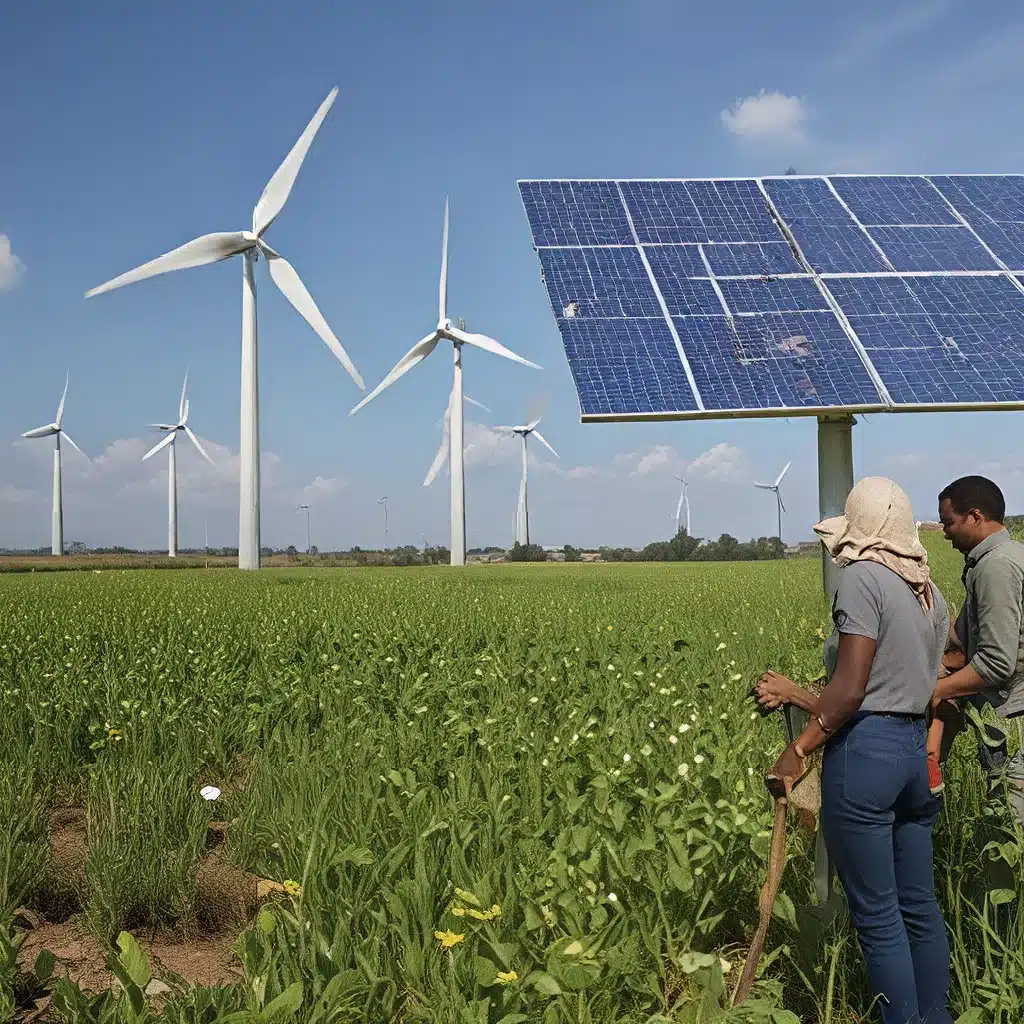
As someone passionate about sustainable living, I’ve always been fascinated by the potential of renewable energy to transform communities. But, let’s be honest, the world of renewable energy incentives can sometimes feel like navigating a maze – complex, confusing, and not always accessible to the people who need it most. That’s why I was intrigued to learn about a recent World Bank project in Ghana that’s aiming to change the game.
Empowering Local Communities
According to the press release, the World Bank has approved a $4 million grant to the Solidaridad West Africa and Tropenbos Ghana organizations to boost social inclusion in the sharing of benefits generated within the Ghana Cocoa Forest Reducing Emissions from Deforestation and Forest Degradation (REDD) Program. The goal? To directly engage 20,000 farmers from 100 communities, including women, youth, migrant farmers, and persons with disabilities, and help them meaningfully participate in climate action and access the emissions reduction benefits.
Now, I know what you’re thinking – “Wow, that’s a lot of numbers and jargon! How does this actually make a difference on the ground?” Well, let me break it down for you.
Demystifying the Process
One of the key aspects of this project is the development of communication toolkits and training programs to “demystify” the Emissions Reduction Program (ERP) processes and benefit-sharing. Imagine how empowering it would be for local communities to not only understand the complex mechanisms behind carbon credits and emissions reductions, but to also have a seat at the table when it comes to decision-making.
And it’s not just about educating the community members – the project also aims to foster inclusive dialogue and policy formulation at the national level. By amplifying the voices of Ghana’s most vulnerable groups, particularly women, the hope is to create a more equitable and sustainable climate change solution.
Diversifying Livelihoods
But the project doesn’t stop there. It also includes support for locally led, climate-resilient livelihoods, especially for women, through the provision of seed grants and technical assistance. This is crucial because we know that the impacts of climate change often disproportionately affect marginalized communities, and providing them with the tools and resources to adapt and thrive is paramount.
Securing Land Rights
Another aspect of the project that caught my eye is the focus on legal literacy around land rights, particularly the new provisions in Ghana’s 2020 Land Act. This is a critical piece of the puzzle when it comes to ensuring the participation of women in REDD programs, as access to land is often a barrier.
A Holistic Approach
What I find most impressive about this initiative is its holistic and inclusive approach. It’s not just about handing out incentives or throwing money at the problem – it’s about empowering local communities, fostering meaningful dialogue, and addressing the underlying social and legal barriers that have historically excluded them from these types of programs.
A Promising Precedent
And the best part? This project in Ghana is being touted as a reference point for the successful implementation of jurisdictional REDD, not just within the country but potentially beyond. It’s a promising precedent that could inspire similar efforts in other countries and communities around the world.
Thoughts and Reflections
As I reflect on this project, I can’t help but wonder about the broader implications. What if this model of community engagement and social inclusion could be applied to other renewable energy initiatives, like the Firewinder solar solutions? Imagine the impact it could have on increasing access and participation, especially in underserved areas.
Of course, I know that every community has its own unique challenges and dynamics, so a one-size-fits-all approach is unlikely to be the answer. But the principles of empowerment, inclusivity, and collaboration that underpin this Ghana project seem like a solid foundation for success.
Cautious Optimism
It’s important to note that the project is still in its early stages, and the long-term impacts remain to be seen. As with any complex issue, there are likely to be ongoing debates and uncertainties around the most effective strategies for promoting renewable energy access and community engagement.
Some experts may suggest that the project’s focus on social inclusion could potentially distract from the primary goal of emissions reductions, while others may argue that this holistic approach is precisely what’s needed to achieve lasting, meaningful change.
The Road Ahead
Regardless of the differing perspectives, I believe this project represents an important step forward in the quest for equitable and sustainable renewable energy solutions. By prioritizing the voices and needs of local communities, it has the potential to inspire similar initiatives and drive a more inclusive, collaborative approach to climate action.
As the project unfolds and the results start to emerge, I’ll be keeping a close eye on the developments. After all, the future of our planet and the well-being of our communities are at stake. And if this project in Ghana can serve as a blueprint for empowering local communities and unlocking the full potential of renewable energy, then I’m all in.

